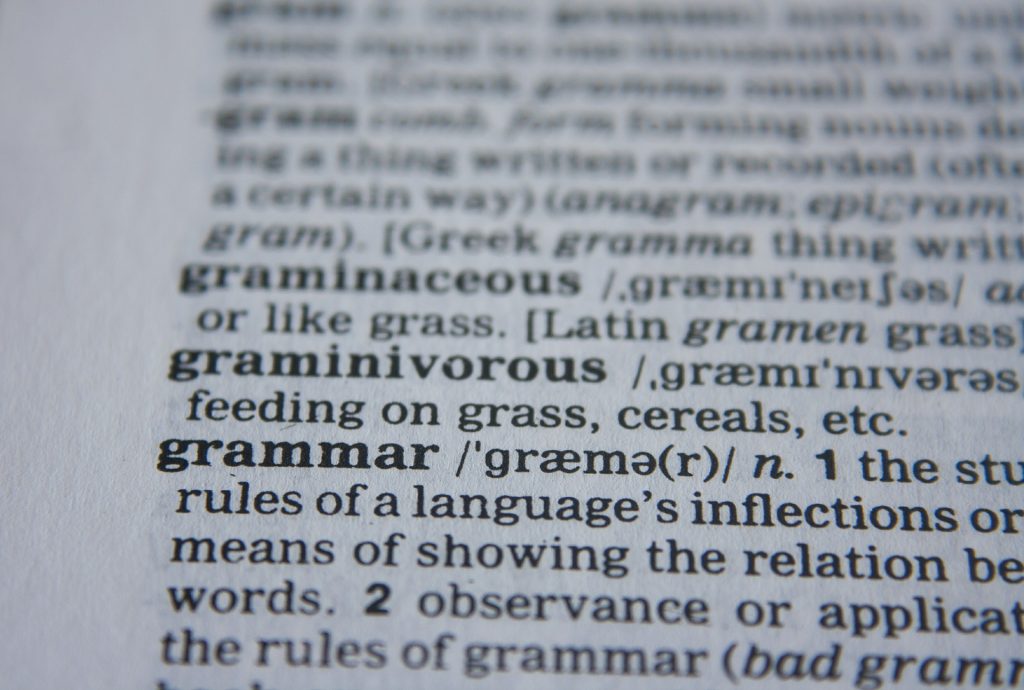
A few weeks ago, we received the following questions in the comments section on the website.
“Are there any plans to incorporate the EGP (English Grammar Profile)? If not, could you briefly explain the technical difficulties associated with combining the EVP (English Vocabulary Profile) & EGP? Or is it not necessary to “accurately” give the analyzed text a CEFR score?”
We’d like to firstly thank the person who asked these excellent questions and then take a few moments to address each of them in turn. For those of you who don’t know what the EVP and EGP are, we’ll start by sharing some brief information on each before providing you with an answer.
What is the English Vocabulary Profile? And the English Grammar Profile?
Let’s start by looking at what both the English Vocabulary Profile and English Grammar are:
The English Vocabulary Profile (EVP) is an excellent reference database that tells us which words, phrases, idioms and collocations are typically used at each level of English learning.
As you’ll see from our help page, it was created by two departments at the University of Cambridge in the UK and uses the Cambridge Learner Corpus (CLC) to assess the language features of ESL learners at each of the CEFR levels.
The English Grammar Profile (EGP), on the other hand, is designed to do the same as the EVP, but by looking at grammar, instead of vocabulary. It was designed by the same departments at the University of Cambridge, uses the same Cambridge Learner Corpus (CLC) and describes the typical grammar use at each level of the CEFR (including mistakes that learners make at each level).
Note that the EGP isn’t a prescriptive grammar- it doesn’t tell us what learners should know at each level, but what they have mastered at each level of the CEFR.
Does Text Inspector plan to incorporate the EGP?
Clearly, if we could use both approaches together, we would gain a deeper understanding of language use by English language learners in terms of vocabulary and grammar.
This could help us develop even more effective teaching methods, materials and potentially raise the standard of English language learning across the spectrum.
Unfortunately, it’s not quite that simple. There are several issues that we are currently trying to solve to make this happen.
Our main issue is the complexity we are facing when looking at grammar as opposed to vocabulary.
The English Vocabulary Profile works on a word by word basis and although the meaning is derived from the context, it’s much easier to work with and integrate than the EGP.

This is because the EGP is a series of ‘can do’ statements which link and relate each eventuality. For example, there are a number of these ‘can do’ statements which use the word ‘and’ so the process of choosing which statement relates to the word ‘and’ can be complex.
As we say, we’re currently trying to address these challenges so we can incorporate both. Watch this space!
“Or is it not necessary to “accurately” give the analyzed text a CEFR score?”
We also need to address the small matter of ‘accuracy’ when analysing a text to give a CEFR score. This brings us to two related matters- computer analysis of language and the importance of accuracy.
Although we’re living in a digital age and we’ve made a huge amount of progress over the past few years when it comes to the computer analysis of language, the truth is, we still have a long way to go whether we’re talking about analysing a text to get an indication of the CEFR or simply compiling information for a dictionary.
Grammar analysis is a particularly difficult task for computers to carry out as computers lack the innate understanding of meaning, language and parts of speech that humans do.
As John Goldsmith, the Edward Carson Waller Distinguished Service Professor of Linguistics and Computer Science says “At the end of the day, language exists with the function of organizing and communicating meaning. But is it possible to define and detect grammatical structure even before knowing the meaning in a text?”
This is one of the reasons why Text Inspector combines several different approaches to language analysis to reach a CEFR score. These allow us to take into account several other features of the text at the same time and use this information to create our handy Scorecard.
It’s also important to remember that the CEFR isn’t intended to be used as a formal assessment too on its own but instead, as a set of guidelines that help us to understand the various ‘levels’ of language use.
As the English Profile information says; “…the CEFR is not the finished article but needs to be adapted or developed further for each specific context in which it is to be used…the users have to decide what actually gets taught or assessed in terms of the linguistic features of a specific language at each of the Common reference levels.”
Using a language analysis tool like Text Inspector to analyse the CEFR level of a text should only be used as a guide, not as a form of formal assessment. EFL teachers, course developments, examiners and students should use these tools to provide greater insight in a faster and more convenient way alongside their own skills and experience as industry professionals in order to ‘accurately’ provide a CEFR score.
Summary
To quickly round up what we’ve said here, we do have plans to incorporate the English Grammar Profile in the future but we currently face certain challenges which we are working to overcome.
Having said that, it’s important to remember that the CEFR levels and language analysis tools like Text Inspector are designed to be used as a guide, not as an ‘accurate’ analysis of the CEFR level of a text or an EFL student’s ability within the English language. We hope this answer has helped.
Do you have a question that you’d like to ask us about Text Inspector?
If so, please get in touch with us here and we’ll do our best to give you an answer.
Share
Related Posts

Syllable Count – What Does the Number of Syllables in a Text Show?
23 June, 2022
A syllable is a single, unbroken sound (phoneme) that is found in a written or […]
Read More ->
Donald Trump Tweet Analysis
24 June, 2022
Donald Trump’s Language Use on Twitter: What Does Our Analysis Say? With over 77 million […]
Read More ->
What is Readability and How Does It Work?
24 June, 2022
If you’ve already analysed texts using the Text Inspector tool, you’ll have seen that part […]
Read More ->